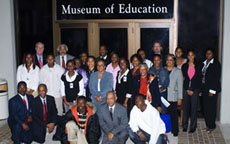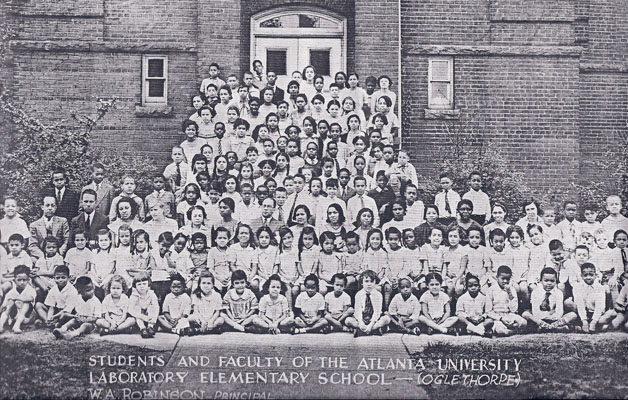

Curator’s Statement
|
||||||
|
||||||
Research on this school has been abridged for this project since Laboratory High School no longer continued in the Secondary School Study after its closing; however, if any school in the United States warrants a full-length institutional history, this would be the one (due to the innovativeness of the educational program rather than the often cited fact that Martin Luther King Jr. attended the secondary school from 1940 until its closing or that distinguished artist Hale Woodruff served on its faculty). Accounts suggest that the Lab School flourished within a progressive education tradition on equal grounds with the more experimental schools of the Eight-Year Study. “The students have a large measure of responsibility for their classroom work. In many courses the students choose the topics to be studied and help to plan class projects. In a number of classes each student may proceed in his study according to his own plans” (Bimson, et al., 1940, p. 186). Craig Kridel Bimson, Oliver, W. G. Carr, S. Everett, G. L. Maxwell, and H. E. Wilson (1940). Learning the Ways of Democracy: A Case Book of Civic Education. Washington DC: NEA and the AASA. |
||||||



